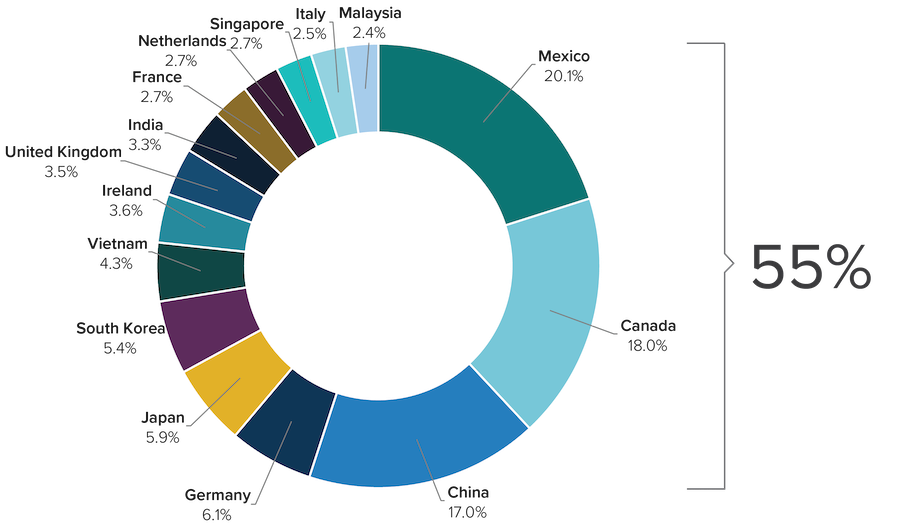New import taxes on China, while Mexico and Canada get a reprieve for now.
The trade war has started—albeit with a smaller opening shot than expected.
President Trump has imposed a 10% tariff on Chinese goods on top of existing tariffs on imports from China. His initial plan had also called for U.S. importers to pay a 25% tax on most products from Canada and Mexico—but those tariffs were paused for 30 days, and it’s possible they might not be enacted at all.
If President Trump does impose tariffs on all three nations, the magnitude of that decision would be hard to overstate. The reason: Mexico, Canada and China account for a whopping 55%, or $2.1 trillion, of total trade with the U.S. (see the chart). The U.S.’s other 12 top trading partners combined don’t equal the trade activity from these three countries.
Percent of Total Trade (Imports + Exports) with the U.S.’s Top 15 Trading Partners

Source: Bloomberg, calculations by Horizon Investments, as of 09/30/2024.
What should U.S. consumers (who have been the driving force behind the strong economic growth in recent years) expect if tariffs on all three countries are implemented? Simply put, significantly higher prices for products such as:
- Cars: Auto parts typically cross the U.S., Canada, and Mexico borders several times before vehicles are assembled.
- Beer: Mexico is the most significant source of imported beer in the U.S.
- Construction and housing: The U.S. imports significant amounts of lumber from Canada. According to some estimates, home construction costs could increase by as much as $29,000.
- Energy and gas: Canada is a major supplier of crude oil.
Ultimately, according to the Budget Lab at Yale University, the average U.S. household could lose about $1,200 of its annual purchasing power due to these tariffs.
That said, the situation remains fluid and uncertain. We believe diversification across asset classes, market capitalizations, and countries will continue to benefit investors as “winners” and “losers” of this trade war evolve. Furthermore, we believe using risk mitigation strategies to counteract the potential economic impact of tariffs may be valuable going forward.

